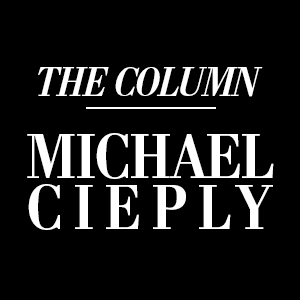The film Academy’s annual membership survey hit email in-boxes on Monday.
As usual, it promises to be something of a nonevent. Most of the questions are inside-y, a bit trivial and generally preoccupied with awards minutiae. Is having in-person Membership Screenings important to you? In preparing for finals voting, about how many films in consideration did you watch? Have you visited the Academy Museum?
Where big issues surface, phrasing seems to telegraph a preferred answer. How important is it for the Academy to continue to be a leader in the industry with representation, inclusion and equity initiatives? How important is it for the Academy to facilitate education and engagement for members on sustainability and climate action in the industry?
Nice words like “leader in the industry” and “facilitate education and engagement” should yield a lot of checks in the top two boxes, “Very important” or “Somewhat important.”
And yet the survey does provoke a thought: Wouldn’t it be grand if someone were to commission a genuine, probing, far-reaching survey of opinions within the entire Hollywood community?
Maybe it’s been done, but I can’t recall ever seeing such a thing. Certainly not on the scale we could use.
This wouldn’t be a simple enterprise. For starters, you’d have to define “Hollywood community.” I’d propose sampling all who make a living by dealing primarily with entertainment production and distribution companies based in and around Los Angeles and New York. That’s a bit arbitrary, but it would include those who feed the American studios and independents, regardless of where in the world they might live. At the same time, it would exclude those — including a growing number of Academy members—whose cinematic life is grounded in other cultures and countries.
In other words, let’s survey the U.S.-based movie and television industries.
Represent workers both high and low, suits and sweaters, talent and agents, assistants and C-suite executives. Include everybody, even the interns and caterers.
This would obviously be expensive, as the survey-takers, unlike those infinitely repetitive political pollsters, would have to break fresh ground with well-designed samples built from scratch. Most media outlets, a bit shaky these days, probably lack the resources. Let’s suppose some task force funded by the Motion Picture Association, AMPAS and the Creative Coalition, with additional support from two or three private foundations to be named later, might bring it off.
What would we ask? Well, everything, and bluntly, with some kind of seal-of-confession triple-lock confidentiality mechanism, to make sure the answers are as honest as possible. Political questions. Industry questions. Cultural questions. Frank questions about movies and television and streaming, on-set behavior, race relations, economic prospects, whatever.
So why bother, you’re probably tempted to ask. Because, I would argue, we’ll probably find out that actual thinking within Hollywood isn’t nearly as uniform as we think.
We and the world at large have come to view Hollywood, the entertainment business, as a progressive, left-leaning, forward-thinking, overwhelmingly Democratic, labor-friendly community that shares common assumptions about gender, race, the climate, elections and the value of education and engagement on all fronts.
But that picture has never been entirely accurate, and I suspect that it’s become even less so in recent years, as a social media-driven cancel culture showed what can happen to those who violate a norm. Remember, almost everyone in Hollywood lives on a trapeze, swinging from gig to gig, contract to contract, always reaching for the next connection. Insecurity is endemic. That has fostered a kind of surface conformism — exhibited on the red carpet, on festival panels, online — that mostly provides the expected answers, whatever the individual involved may actually think.
But in long decades as a journalist and would-be producer, I’ve come to know dozens of industry players who muffled or suppressed their beliefs to avoid conflict with what seemed to be the party line. It’s hard enough to get work, why make things worse by aligning with the few outliers?
(And yet an industry fissure over attacks in Israel and Gaza has suddenly made it clear that everyone in the game doesn’t think alike — not by a long shot.)
So I’d like to know what Hollywood really believes. An honest survey might bring surprises. Who knows, it might even shake things up, and make story lines, casting choices, awards speeches and media narratives more varied, and interesting, than they’ve been for a while.

